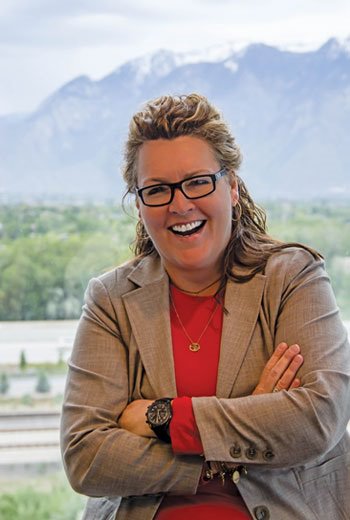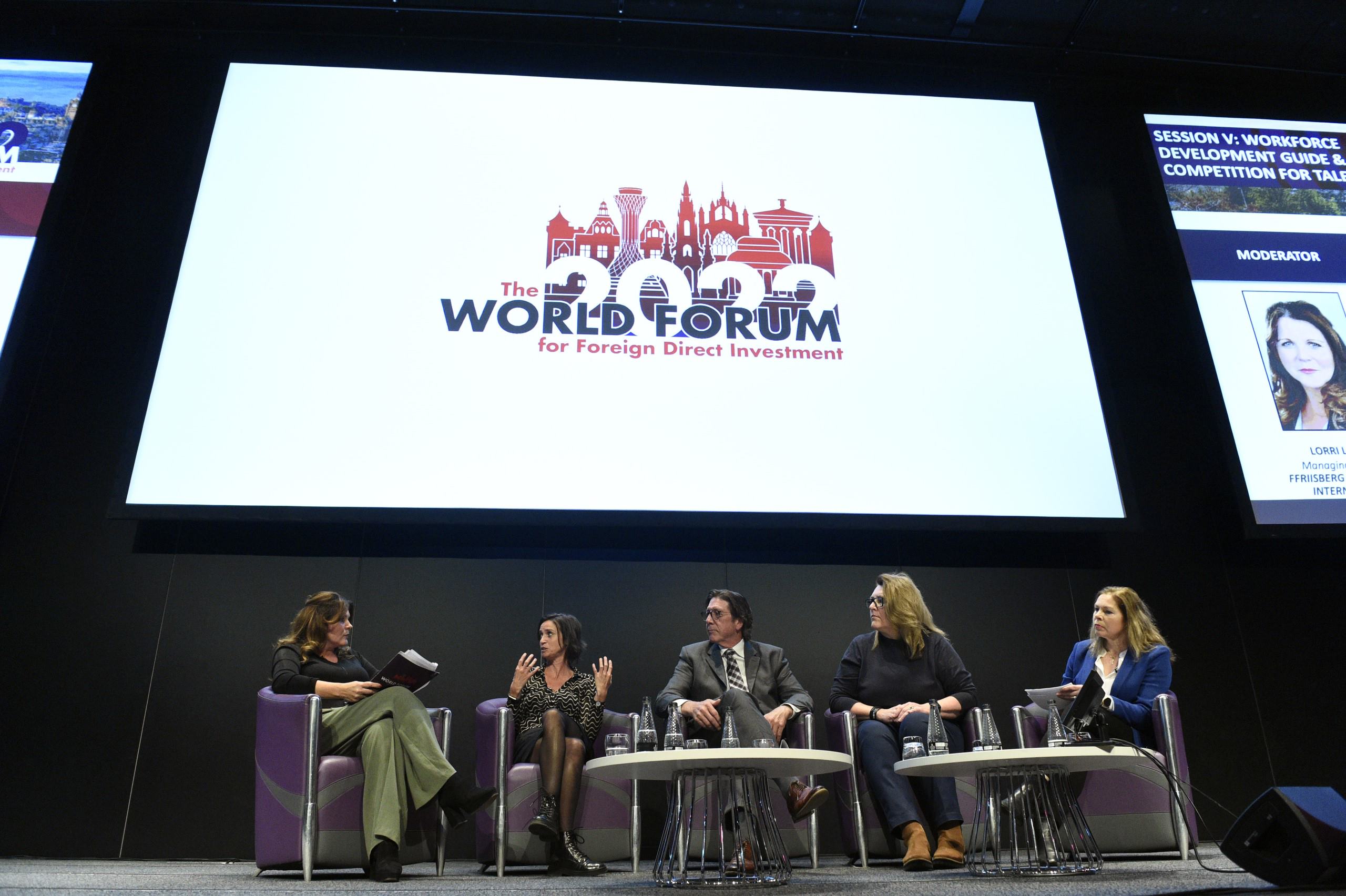If you are not spending as much time developing your future workforce as you are engaging your current one, then you are falling behind your competition.
That was just one of the key takeaways from the World Forum for Foreign Direct Investment held in early May in Edinburgh, Scotland.
The global competition for talent has never been more intense, and only those companies that build and maintain ecosystems to support long-term talent generation and retention will survive, said a panel of experts convened at the World Forum organized by Conway Data Inc., publisher of Site Selection.
Among the topics the panel explored were the impact of remote work; engagement of millennials; and the benefits of hiring neurodiverse workers.
 “The power has shifted from your organization to the person who is doing the work, and the war for talent is now truly global.”
“The power has shifted from your organization to the person who is doing the work, and the war for talent is now truly global.”
— Lorri Lowe, Managing Partner, Friisberg & Partners International
“The last several years have seen a huge shift in how and where we work,” said panel moderator Lorri Lowe, managing partner of Swiss-based Friisberg & Partners International. “How has the move to remote working changed the decision-making process for companies? Has this helped or hindered locations in attracting and retaining the top talent they need to compete for investment projects? One thing we know is that the power has shifted from your organization to the person who is doing the work, and the war for talent is now truly global. What are some key strategies that your company is employing to attract and retain talent?”
Jon Gustafson, human resources economic development lead for strategic workforce initiatives at Lockheed Martin Corp., said the global labor environment has never been more challenging.
“We are based in Maryland. We have over 114,000 employees in more than 40 countries,” he said. “The majority of our workforce are scientists and engineers.”
Gustafson said Lockheed “extends our training models to existing workforce development systems in government and our other partners. We help build a regional ecosystem around critical talent development. A good example is Ocala, Florida, where we have support from the governor, the local workforce board, the Community College of Central Florida, and other public partners. We were hiring 800 electronic assemblers for our missile control operation. The training lab there simulates closely what the work environment will be for all of these future Lockheed employees.”
Lockheed developed a six-week program that prepares new workers for the factory floor. “We also extended our tuition reimbursement program for all our employees,” he said. “It has been a highly successful program. We have seen our retention rate go up as a result of our apprenticeship program.”
Want Better Workers? Be a Better Manager
Carine Clark, partner at Pelion Venture Partners in Cottonwood Heights, Utah, said that one mistake many employers make is giving up on their younger workers too easily and too quickly.
 “The reality is that if your policies and programs don’t support what is important to millennials, your company probably will not exist in 10 years.”
“The reality is that if your policies and programs don’t support what is important to millennials, your company probably will not exist in 10 years.”
— Carine Clark, Partner, Pelion Venture Partners
“I call them the much-maligned millennials,” Clark said. “The reality is that if your policies and programs don’t support what is important to them, your company probably will not exist in 10 years. They will control the U.S. voting bloc until 2050. You have to find ways to embrace and encourage them. They care about meaning and connection in their jobs and lives. They don’t want to be in a job that is highly paid but has no meaning. They care about flexibility.”
Clark said they will also be among your most loyal and hardest working employees. “We know that 86% of them check their work emails and messages at home. They want to be challenged. I love millennials,” she added. “I can give them hard projects and they are not afraid to fail. We just have to be better managers.”
What about location? Has the pandemic altered accepted norms?
Patsy Van Hove, strategic location consultant for IBM Consulting – PLI, said it’s incumbent that employers choose labor markets that are scalable and sustainable. “There is more emphasis on cultural fit now,” she said. “A lot of emphasis is also being placed on risk, and not just on the risks you encounter now, but whether you can predict the next risk factors.”
The panel also discussed the importance of quality of life as a talent attraction incentive. Clark said it’s clearly important to people in Utah. “We are the fastest growing state in the nation,” she said. “We have under 2% unemployment. The outdoor recreation in Utah is compelling.”
A Mother’s Plea Leads to a Revelation
Emma Walker, Scotland director for UK-based Auticon, discussed the benefits of hiring a neurodiverse workforce. “Many of them have self-taught skills, but they have nothing on paper to reflect that,” she said. “Silicon Valley is full of autistic coders. They are excellent at pattern recognition. Not everyone can do these jobs.”
Clark cited an example of a Utah mother who called Clark and begged her to hire her autistic son. “She called me and said, ‘Can I pay you to pay him to work for you?’ He was neurodiverse,” said Clark. “This kid was one of the best coders who ever worked for me. Bless the parents for having the guts to call me.”
Clark said the experience taught her the importance of being a better manager and leader. “I am fascinated with productivity,” she said. “Gallup says that the average U.S. worker self-reports a productivity level of 33%. If we can move productivity up by just a couple of points, we can make a major difference.”
“Engagement is the key,” said Gustafson. “Have regular check-ins with your people. Help them understand how their work output contributes to the company’s goals, growth and financials.”
5 KEY TAKEAWAYS:
-
Partner with others to build a regional training ecosystem.
-
Marry your company culture to your best workers rather than ask them to marry yours.
-
Encourage your people to not be afraid to fail.
-
Look for skills that don’t have paper credentials.
-
Add to your team by hiring neurodiverse talent.

